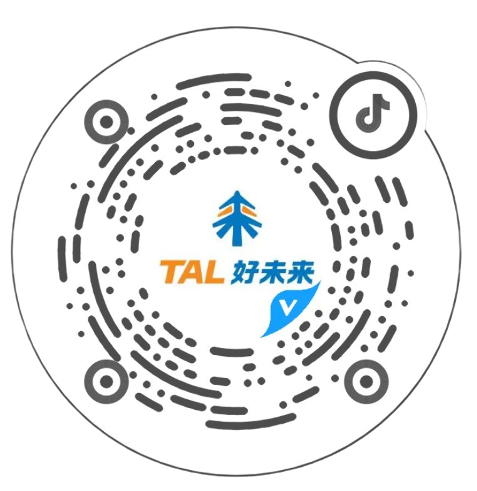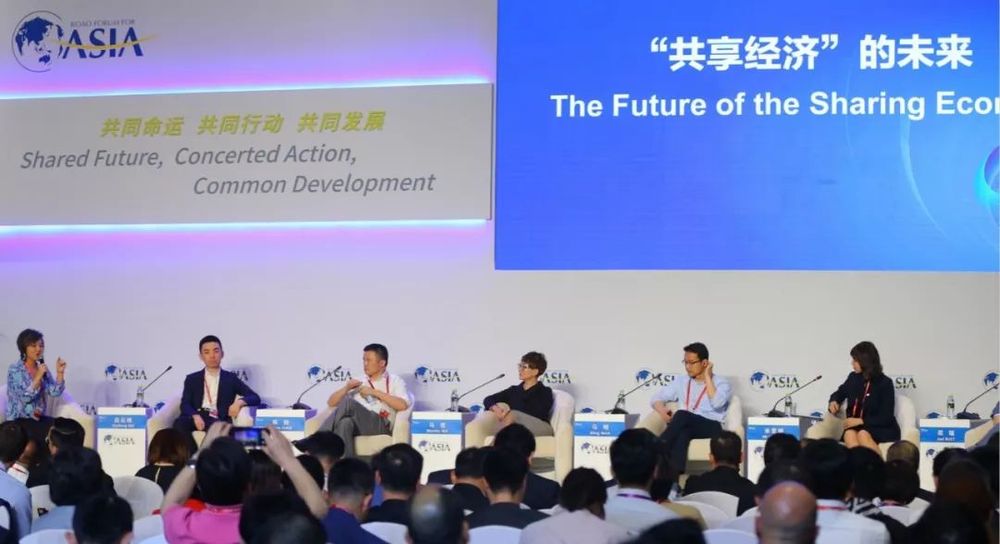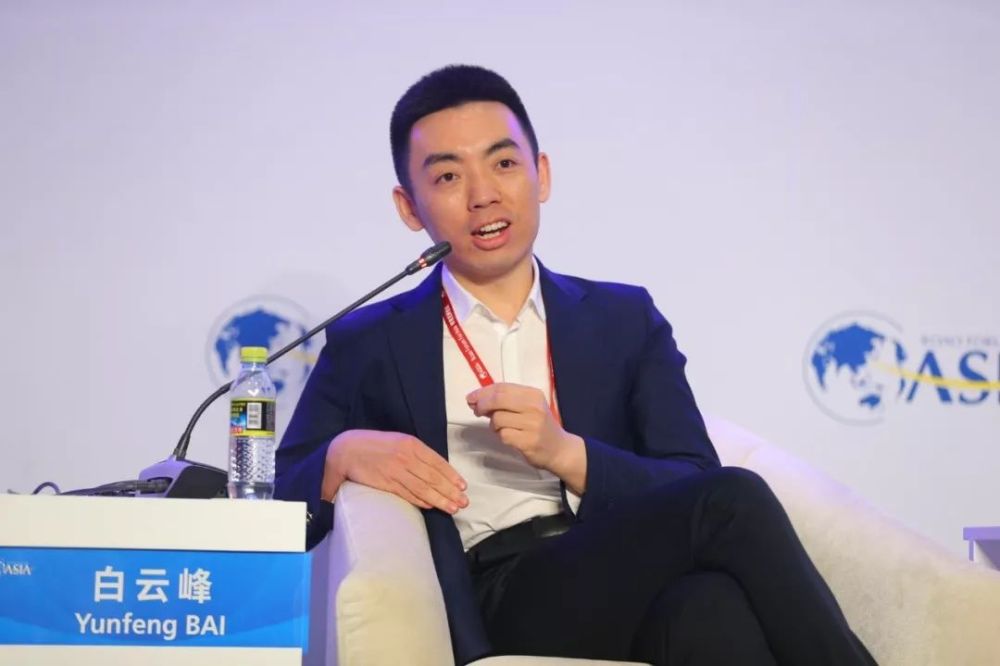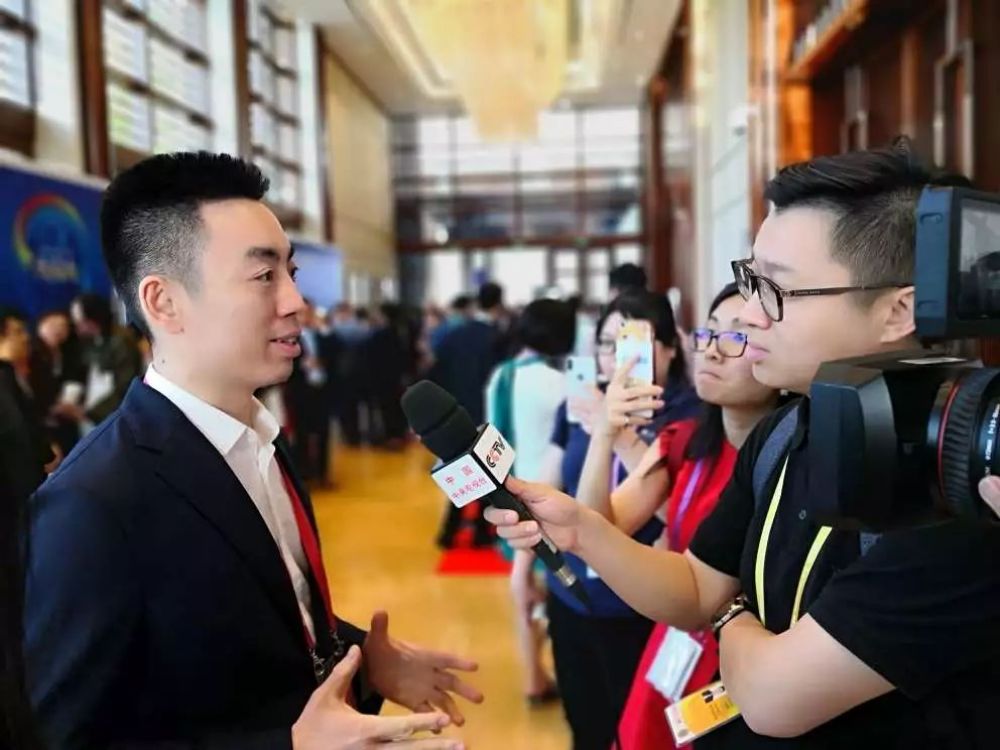




From March 26th to 29th, the 2019 Boao Forum for Asia Annual Conference was held in Boao, Hainan, China. The theme of this year's annual conference was "Shared Future, Concerted Action, Common Development." On the 28th, Bai Yunfeng, President of TAL Education Group, was invited to participate in the "Future of the 'Sharing Economy'" forum at this year's Boao Forum, where he joined representatives from leading companies in various sectors of the sharing economy, including Chen Chi, co-founder and CEO of Xiaozhu.com, Ma Jia, Global Vice President and China's President of Booking.com, Anthony Tan, President of Singapore's Grab Group, and French think tank leader Zhou Rui to discuss the current development and future trends of the sharing economy.
Bai Yunfeng stated that technology is driving the transformation of the education model, and TAL Education has been committed to "advancing education through technology,” aiming to share high-quality educational resources with more children through various means, both now and in the future, for them to enjoy higher quality and more equitable education.

Consumer Upgrading Drives Education Demand & Shared Economy Welcomes Broad Space
China's basic education has made tremendous progress over the past forty years. The upgrading of Chinese families' consumption has spurred a strong desire for quality educational resources among hundreds of millions of primary and secondary school students.
In response, Bai Yunfeng pointed out that there are still two core issues in primary education: the unequal distribution of educational resources and the supply of high-quality educational resources far below demand. The sharing economy has the opportunity to address the current situation of unequal distribution and imbalance of supply of educational resources. "Over the past 16 years, TAL has invested heavily in teaching research, faculty, and technological innovation, but far from meeting the strong demand of Chinese families for basic education. The emergence of the sharing economy has expanded the incremental space for basic education, and its inception also originates from the progress and accumulation in the field of basic education."
"Under such circumstances, more educational forms are emerging, especially in knowledge acquisition, due to significant changes in online education," Bai Yunfeng said, noting that the year-on-year compound growth rate of China's online education over the past 3-5 years has far exceeded that of offline education, and the potential for development in online education surpassed that of traditional education. "The combination of sharing economy and education" is ushering in broad development space.

Technology Assists Educational Innovation & The Essence of "Nurturing" Will Not Change
The sharing economy, driven by the Internet, has changed the situation of unequal distribution of educational resources, while cutting-edge technologies such as artificial intelligence and big data are creating more new educational formats. "The future sharing economy will, driven by technology, change the ways of connection and production," Bai Yunfeng said.
Since its establishment, TAL has been heavily investing in technology and talent development to promote personalized educational development. Over the past three years, TAL's investment in technology and research has exceeded 1 billion RMB, with thousands of engineers and researchers focusing on educational technology and new models.
Bai Yunfeng believes that the sharing economy has not fundamentally changed education itself: "AI has separated 'teaching' from 'nurturing.' 'Teaching' is the 'AI+' model, and technology has expanded the boundaries of high-quality educational resources. In the dimension of 'nurturing,' humans still play a dominant role, and no matter how technology changes, the essence of 'nurturing' will not change."

National Supervision Promotes Orderly Development in the Industry & "More Fairness and Quality" is a Common Expectation
In recent years, China has enacted a series of laws and regulations to regulate the development of the education industry in order to standardize market access, reinforce corporate responsibilities, and build a comprehensive governance mechanism, laying a solid foundation for the healthy and sustainable development of the education industry.
In response, Bai Yunfeng expressed that whether in traditional economies' strict monitoring of quality and processes in the B2C model or in emerging economies' exploration of the sharing economy, the relevant policies of regulatory departments in the education industry are aimed at achieving a fairer and higher-quality education.
Last year, TAL announced a "redefinition" strategy to lead strategic transformation with smart education and an open platform, continually opening up and sharing high-quality educational resources to the entire industry and society. Bai Yunfeng stated, "In the era of the sharing economy, we hope to activate every independent educational cell, enabling more people to access previously unreachable educational resources in a more efficient and cost-effective manner, realizing the common destiny, joint action, and shared development of the entire education industry."